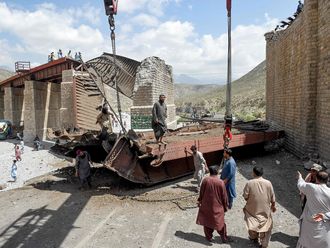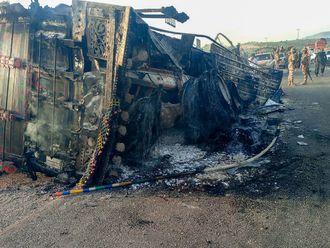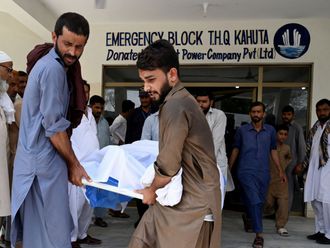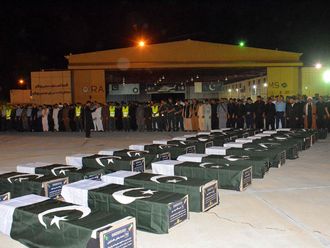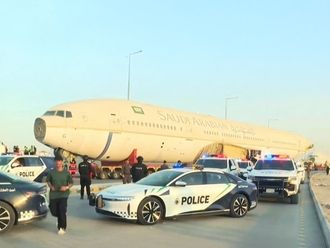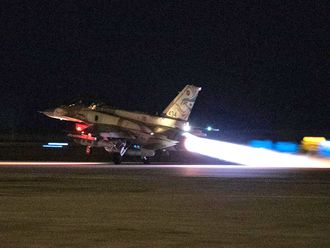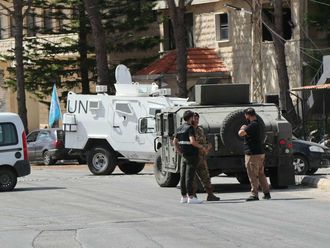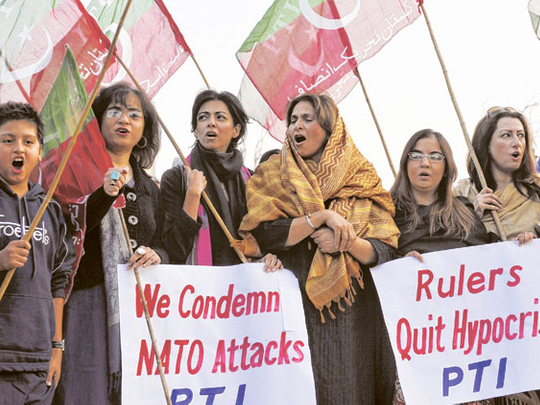
Islamabad: The Nato airstrikes that killed 24 Pakistani soldiers lasted almost two hours and continued even after Pakistani commanders had pleaded with coalition forces to stop, the army claimed yesterday in charges that could further inflame anger in Pakistan.
Nato has described the incident as "tragic and unintended" and has promised a full investigation.
Unnamed Afghan officials have said that Afghan commandos and US special forces were conducting a mission on the Afghan side of the border and received incoming fire from the direction of the Pakistani posts. They responded with air strikes.
Ties between Pakistan and the US were already deteriorating before the deadly attack and have sunk to new lows since, delivering a major setback to American hopes of enlisting Islamabad's help in negotiating an end to the 10-year-old Afghan war.
Army spokesman Major General Athar Abbas said the Pakistani troops at two border posts were the victims of an unprovoked aggression.
He said the attack lasted almost two hours and that commanders had contacted Nato counterparts while it was going on, asking "they get this fire to cease, but somehow it continued."
The Pakistan army has previously said its soldiers retaliated "with all weapons available" to the attack.
The poorly defined, mountainous border has been a constant source of tension between Pakistan and the United States. Nato officials have complained that insurgents fire from across the frontier, often from positions close to Pakistani soldiers who have been accused of tolerating or supporting the militants. Nato and Afghan forces are not allowed to cross over into Pakistan in pursuit of militants.
Saturday's strikes have added to popular anger in Pakistan against the US-led coalition presence in Afghanistan. Many in the army, parliament, general population and media already believed that the US and Nato are hostile to Pakistan and that the Afghan Taliban are not the enemy.
By claiming it was the victim of unprovoked aggression, the Pakistan army is strengthening this narrative.
While the US is widely disliked in Pakistan, the army has accepted billions in American aid over the last 10 years in return for its cooperation in fighting Al Qaida. It has been accused of fomenting anti-American sentiment in the country to extract better terms in what is essentially a transactional and deeply troubled relationship with Washington.
Saturday's deadly incident also serves to shift attention away from the dominant perception of the Pakistani army in the West over the last five years — that of an unreliable ally that supports militancy. That image was cemented after Al Qaida's chief Osama Bin Laden was found to have been hiding in an army town close to the Pakistani capital when he was killed.
For Pakistan's weak and much criticised elected government, Saturday's air strikes provide a rare opportunity to unite the country and a momentary relief from attack by rivals eyeing elections in 2013 or sooner.
By contrast, deaths of soldiers and civilians in attacks by militants, some with alleged links to the country's spy agencies, are often greeted with official silence.


